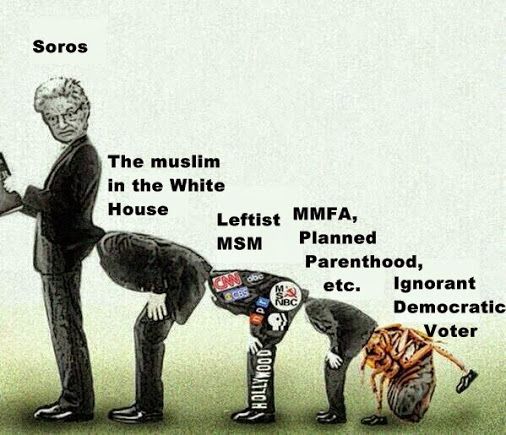The Economist/YouGov Poll:
Is the country better off now than it was eight years ago?
60 percent of Trump voters responded to this question saying that the country was better off eight years ago than today
Dow? Banking? Auto? Housing? Really?
Do you think that the proportion of persons without insurance has increased or decreased over the past five years?
only 26 percent of Trump voters correctly said that persons without insurance decreased
On the subject of climate change do you think: (A) The world’s climate is changing as a result of human activity; (B) The world’s climate is changing but NOT because of human activity; (C) The world’s climate is NOT changing.
Only 36 percent of Trump voters chose "A" as their answer
Did Saddam Hussein have weapons of mass destruction before the invasion of Iraq in 2003 that the U.S. never found?
68 percent of Trump voters said that it was definitely/probably true that Saddam had WMDs
Was President Obama born in Kenya?
52 percent continue to say that Obama is definitely/probably a native Kenyan.
Did Russia hack the email of Democrats in order to increase the chance that Donald Trump would win the Presidential election.
80 percent say the charges against Russia are definitely/probably NOT true
Were millions of illegal votes cast in the election?
62 percent of Trump voters say the claim is definitely/probably true
Did Leaked email from Hillary Clinton’s campaign contain code words for pedophilia, human trafficking and satanic ritual abuse - what some people refer to as ’Pizzagate’?
46 percent of Trump voters said that this ludicrous fiction was definitely/probably true
https://d25d2506sfb94s.cloudfront.net/cumulus_uploads/document/ljv2ohxmzj/econTabReport.pdf
Is the country better off now than it was eight years ago?
60 percent of Trump voters responded to this question saying that the country was better off eight years ago than today
Dow? Banking? Auto? Housing? Really?
Do you think that the proportion of persons without insurance has increased or decreased over the past five years?
only 26 percent of Trump voters correctly said that persons without insurance decreased
On the subject of climate change do you think: (A) The world’s climate is changing as a result of human activity; (B) The world’s climate is changing but NOT because of human activity; (C) The world’s climate is NOT changing.
Only 36 percent of Trump voters chose "A" as their answer
Did Saddam Hussein have weapons of mass destruction before the invasion of Iraq in 2003 that the U.S. never found?
68 percent of Trump voters said that it was definitely/probably true that Saddam had WMDs
Was President Obama born in Kenya?
52 percent continue to say that Obama is definitely/probably a native Kenyan.
Did Russia hack the email of Democrats in order to increase the chance that Donald Trump would win the Presidential election.
80 percent say the charges against Russia are definitely/probably NOT true
Were millions of illegal votes cast in the election?
62 percent of Trump voters say the claim is definitely/probably true
Did Leaked email from Hillary Clinton’s campaign contain code words for pedophilia, human trafficking and satanic ritual abuse - what some people refer to as ’Pizzagate’?
46 percent of Trump voters said that this ludicrous fiction was definitely/probably true
https://d25d2506sfb94s.cloudfront.net/cumulus_uploads/document/ljv2ohxmzj/econTabReport.pdf







